Is your refrigerator leaking after replacing the water filter?
Discover the reasons behind this frustrating issue and find out how to tackle it head-on. You’ll learn how to fix a leaking refrigerator after replacing the water filter in this article.
Get ready to get rid of those unwanted puddles and restore your refrigerator’s functionality.
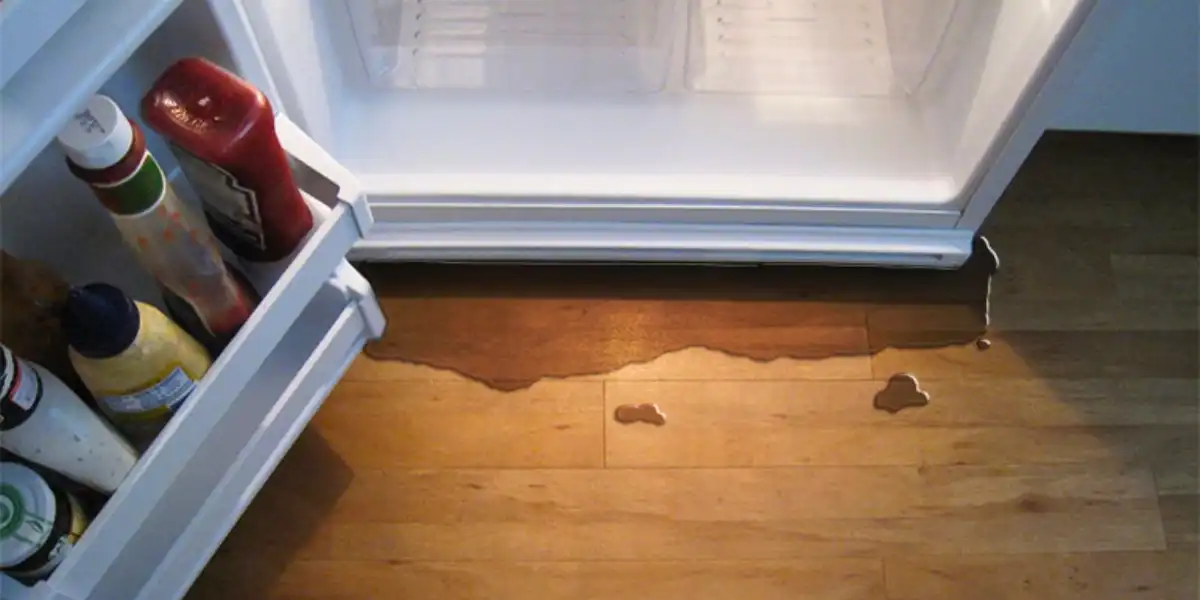
Why is My Refrigerator Leaking After Replacing the Water Filter?
There are several reasons why your refrigerator might be leaking after you’ve replaced the water filter.
Here are a few possibilities:
Incorrect Installation:
If the water filter is not properly installed, it could result in a leak. This could happen if the filter isn’t properly seated or is installed at an angle.
Recheck the installation according to the manufacturer’s instructions.
Incorrect or Incompatible Filter:
The new water filter might not be the correct one for your refrigerator model. It’s important to use a filter that is compatible with your specific refrigerator.
Check the model number of your filter and confirm that it’s the right one for your refrigerator.
Damaged Filter or Refrigerator Housing:
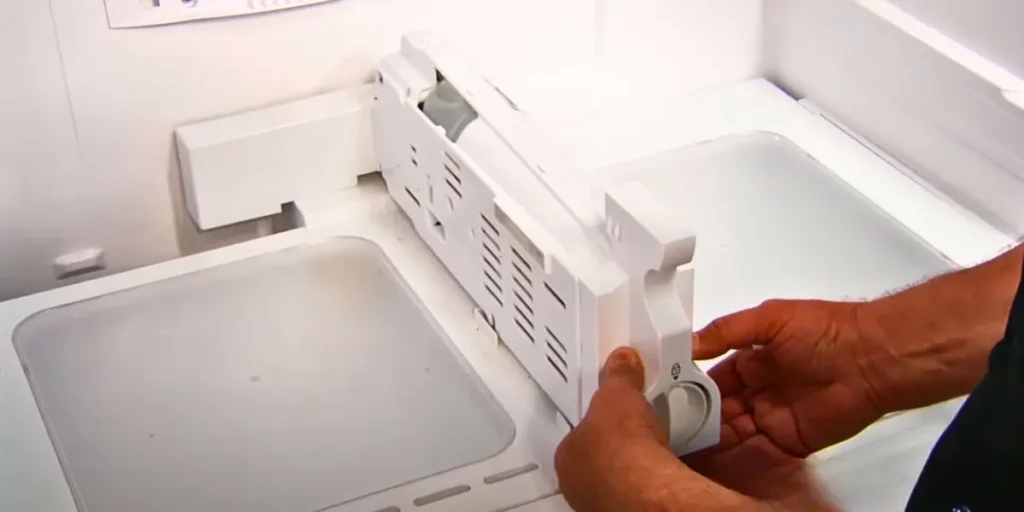
The filter or refrigerator’s filter housing might have been damaged during the replacement process.
This could lead to leaks. Inspect both the filter and the housing for any signs of damage.
Improper Seal:
An O-ring or gasket may not be properly seated or damaged, allowing the filter to leak. This can result in a leak.
Check the O-ring or gasket and make sure it’s in good condition and properly positioned.
Pressure Imbalance:
Sometimes after replacing a water filter, the system needs to be flushed to balance the pressure. If this doesn’t happen, it could lead to leaking.
Follow your manufacturer’s instructions for flushing the system after replacing the filter.
How do leaking refrigerators cause damage?
Leaking refrigerators can cause a variety of problems and damages. Here are a few of the most common ways:
Floor Damage:
Over time, water leaks from a refrigerator can warp, stain, or even rot wooden floors. The leak can lead to water accumulation beneath the carpet surface, damaging the fibers.
It is also possible for tiles to lose their adhesive properties due to long-term water exposure.
Mold and Mildew:
Leaks can cause mold and mildew growth when persistent moisture is present. In addition to unsightly spots and unpleasant odors, these fungi can also cause health problems.
Mold can cause allergic reactions, respiratory problems, and even death in severe cases.
Wall Damage:
A refrigerator near a wall can cause discoloration, peeling paint, or wallpaper if water seeps through.
Wood walls can become rotted over time through constant exposure to water.
Damage to Lower Cabinets and Fixtures:
A refrigerator next to a cabinet can warp the wood, leading to misshaped doors and shelves.
It can also destroy the finish on your cabinets, causing discoloration and blotchiness. Metal fixtures can rust and degrade over time with consistent water exposure.
Electrical Damage:
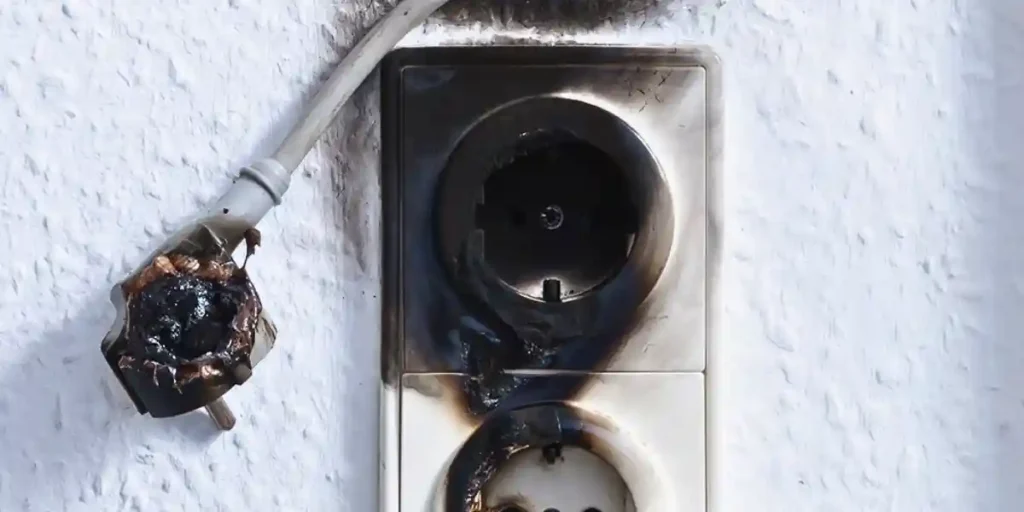
An electrical short can occur if water contacts electrical outlets or wires, causing outages or fires.
Refrigerator electrical systems could even malfunction or stop working entirely as a result.
Damage to the Refrigerator Itself:
There is a possibility that leaks in your refrigerator indicate a bigger problem. A broken seal might mean your refrigerator is not closing properly, leading to energy waste.
Water exposure over time can also corrode metal components in the refrigerator’s lower part.
Higher Utility Bills:
Maintaining the internal temperature of a malfunctioning refrigerator may be challenging.
This will lead to higher energy consumption, which will be reflected in your energy bills.
The refrigerator may also consume more energy if it leaks onto its own motor or electrical system.
Troubleshooting Steps to Fix a Leaking Refrigerator
Follow these troubleshooting steps if your refrigerator is leaking:
Check the Defrost Drain:
Food particles accumulate and ice melts, clogging the defrost drain and resulting in water buildup.
Typically, the defrost drain is located on the back wall of the fridge, often beneath the evaporator fins.
You can use a thin, flexible tool like a pipe cleaner or a piece of wire to remove the clog.
Flushing the drain with a solution of warm water and vinegar can also help to dissolve the ice or clear out any remaining debris.
Inspect the Water Supply Line:
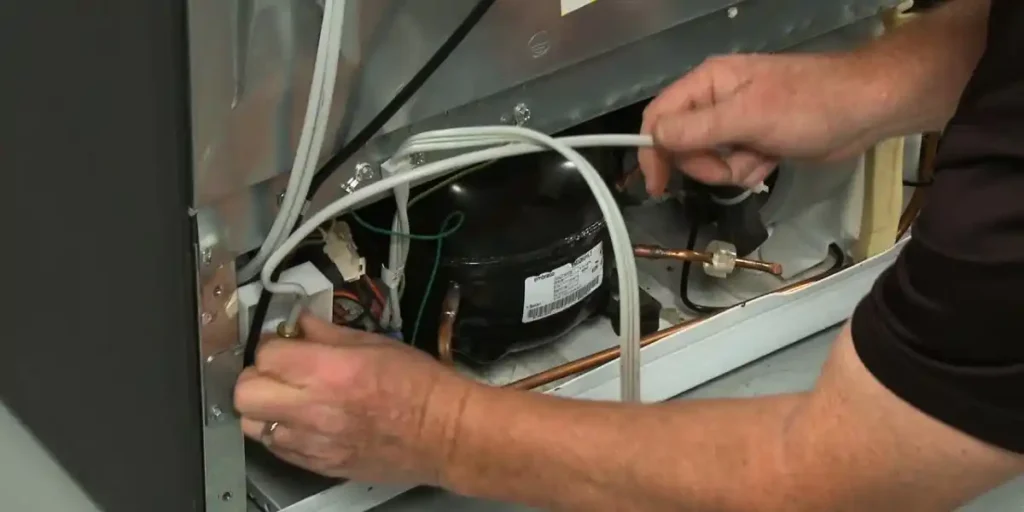
If your refrigerator is equipped with a water dispenser or an ice maker, it will have a water supply line.
This line can sometimes become loose or damaged, causing leaks. Check for cracks or tears in the line and ensure it’s securely connected. If it appears damaged, it should be replaced.
Check the Drain Pan:
Defrosted water is collected in the drain pan. It is normally evaporated by the heat from the compressor.
If the drain pan is cracked or has a hole in it, water will leak out onto the floor. The drain pan is typically located at the bottom of the refrigerator.
You’ll need to remove the front kickplate or the rear access panel to get to it.
Inspect the Water Filter:
Water filters need to be changed regularly, and if they’re not properly installed, they can cause leaks.
Make sure you have the right filter for your refrigerator model. Check the seal on the filter as well; if it’s not sealed properly, water can leak out around the edges.
Ensure that it is screwed in properly – not too loose or too tight.
Check the Door Gasket:
Refrigerator and freezer doors are sealed with rubber gaskets. In a faulty gasket, warm air could seep into the refrigerator, causing condensation and water pooling.
You can check the gasket by closing the refrigerator door on a thin piece of paper and pulling it out. If it slides out easily, your gasket may need replacing.
Level the Refrigerator:
Refrigerators are designed to operate when level. If they’re tilted, it can cause the doors to not shut properly, leading to condensation and leaks.
You can adjust the feet at the bottom of the fridge until it sits level. Check the level with a level.
Inspect the Ice Maker:
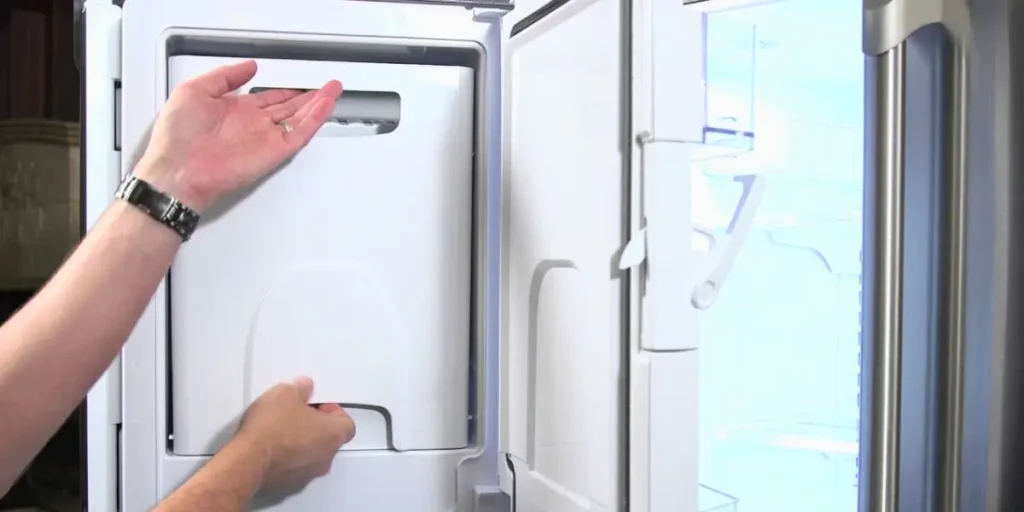
Ice makers can leak, especially if they overfill or their water supply lines are loose. Check if the fill tube is aligned with the ice maker.
If not, you can usually manually adjust the tube to the correct position. If the water line is loose, tighten it.
Factors to Consider When Installing a Water Filter in Your Refrigerator
In order to ensure optimal performance and longevity, you should consider the following factors:
Compatibility:
It’s essential to use a filter that’s designed for your specific refrigerator model. Non-compatible filters will not only result in poor filtration but may also damage your refrigerator.
To find the correct filter model, refer to your refrigerator’s user manual or manufacturer’s website.
Certification:
Ensures water filters meet certain standards and remove contaminants effectively. The NSF/ANSI 42 standard is for aesthetic effects (like chlorine taste and odor), while NSF/ANSI 53 covers health effects (like lead, mercury, and volatile organic compounds).
A certified filter gives you peace of mind that it’s performing to the claimed specifications.
Installation Process:
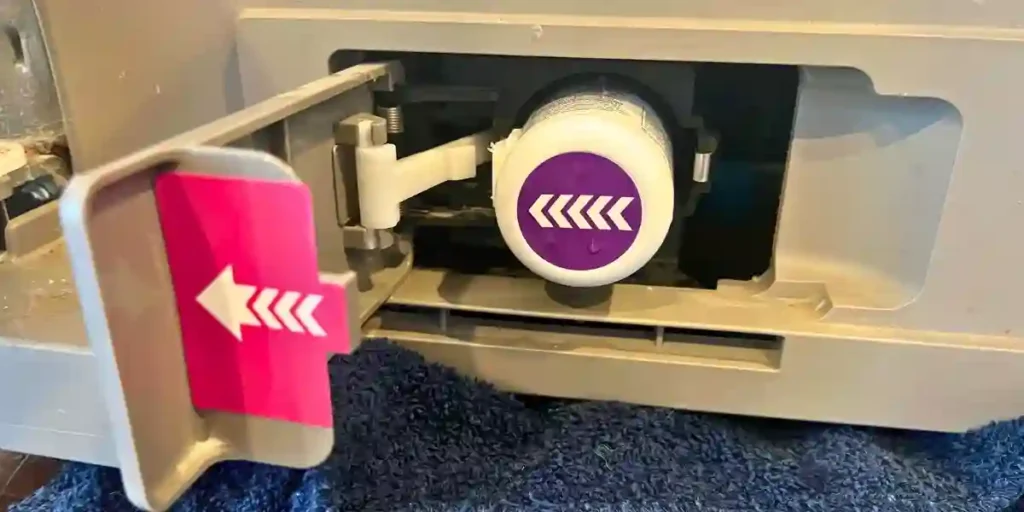
Incorrectly installed filters can cause a host of problems. Always follow the manufacturer’s installation instructions in the letter.
A properly aligned and securely seated filter will prevent leaks or problems with water flow.
Filter Life:
The life of a filter varies based on your usage and the quality of your water. Manufacturers often give a rough estimate, like six months or 200 gallons.
It’s best to monitor your water’s taste and odor and replace the filter sooner if necessary.
Some refrigerators also have a filter change reminder or a light that indicates when to change the filter.
Water Pressure:
High water pressure in your home can cause the filter to leak or fail prematurely.
If your home’s water pressure falls within the manufacturer’s recommended range, you’re good to go.
Water Quality:
High sediment or contaminants in your local water supply can cause your filter to clog up more quickly.
Pre-filtering your refrigerator water to remove larger particulates is recommended in such cases.
Cost and Availability:
Some filters are expensive or hard to find, which could make maintenance a challenge.
Check the price and availability of replacement filters before settling on a particular model.
Third-party filters are cheaper, but make sure they’re good quality and won’t damage your refrigerator.
Recycling or Disposal:
It’s important to consider how you’ll dispose of used water filters when choosing them.
There are plenty of recycling programs for used filters, or you may be able to find one near you.
Maintenance Tips to Prevent Leaks After Replacing the Water Filter
Here are some tips to help avoid leaks after replacing the water filter:
Proper Installation:
Make sure you correctly install the water filter. It should be secure, but not overly tightened, as that can damage the filter or the refrigerator. Always follow the manufacturer’s instructions.
Regular Filter Replacement:
Adhere to the manufacturer’s recommended filter replacement schedule. Filters that get clogged with particles can reduce water flow and increase pressure, causing leaks.
Inspect Filter Regularly:
Even if it’s not time for a replacement, it’s good practice to regularly inspect the water filter. Its housing for any visible signs of damage, cracks, or leaks.
Check Compatibility:
Always use a filter designed for your specific refrigerator model. Incompatible filters may not fit properly, leading to potential leaks.
Flush the New Filter:
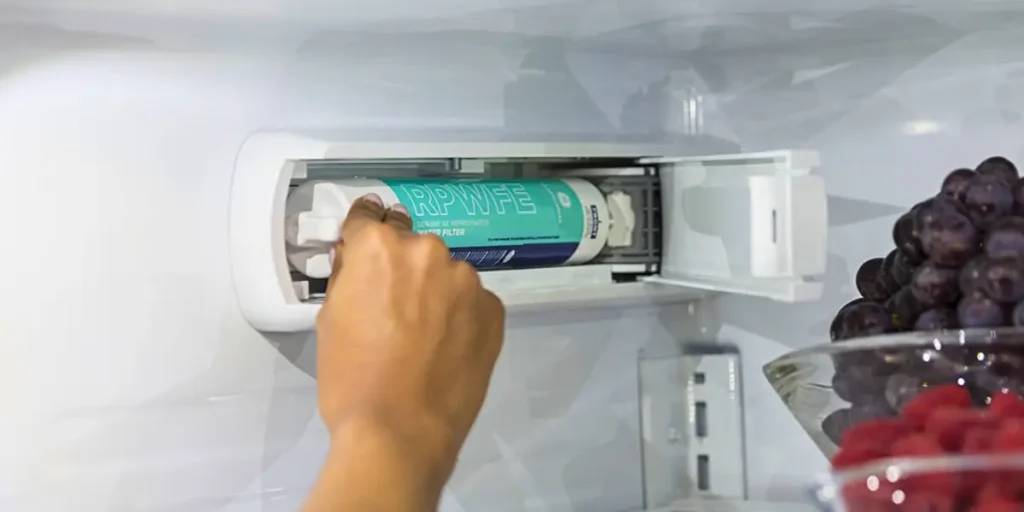
Replace the water filter and run water through it for a few minutes to flush out any debris. Ensure that it’s installed properly without leaks.
Regular Appliance Maintenance:
Aside from the filter, other parts of the refrigerator could also cause leaks if not maintained properly.
Make sure the defrost drain, drain pan, water supply line, and door seals are in good condition.
Proper Refrigerator Leveling:
Make sure your refrigerator is level. An uneven refrigerator can cause improper door closure or leaks from the defrost drain or drain pan.
Monitor Water Pressure:
If your home’s water pressure is too high, it could cause your filter to leak or fail prematurely.
Check your refrigerator’s water pressure to make sure it is within the recommended range.
FAQs About Refrigerator Leaks After Water Filter Replacement
Can An Incompatible Water Filter Cause My Refrigerator To Leak?
Yes, an incompatible water filter can certainly cause your refrigerator to leak. If the filter isn’t designed for your specific model, it may not fit properly, which can result in leakage.
How Often Should I Replace My Refrigerator’s Water Filter?
As a general guideline, most manufacturers suggest replacing the water filter every six months. You may need to replace it more often if your water has a high level of contaminants.
What Should I Do Right After Installing A New Water Filter?
For a new water filter, run water through it for several minutes after installation. You can use this process to remove any manufacturing debris and ensure the filter is properly installed.
Can High Water Pressure Cause My Refrigerator Water Filter To Leak?
Indeed, high water pressure can lead to leaks or even cause the filter to fail prematurely. Your refrigerator’s manufacturer recommends a certain range of water pressure for your home.
Conclusion
Navigating a leaking refrigerator after replacing a water filter can be a hassle. It is possible to prevent this common problem if you understand its root causes.
Maintain proper water pressure, replace filters regularly, and replace your refrigerator’s filters.
Remember, compatible filters and routine appliance check-ups are your best defense against leaks.
